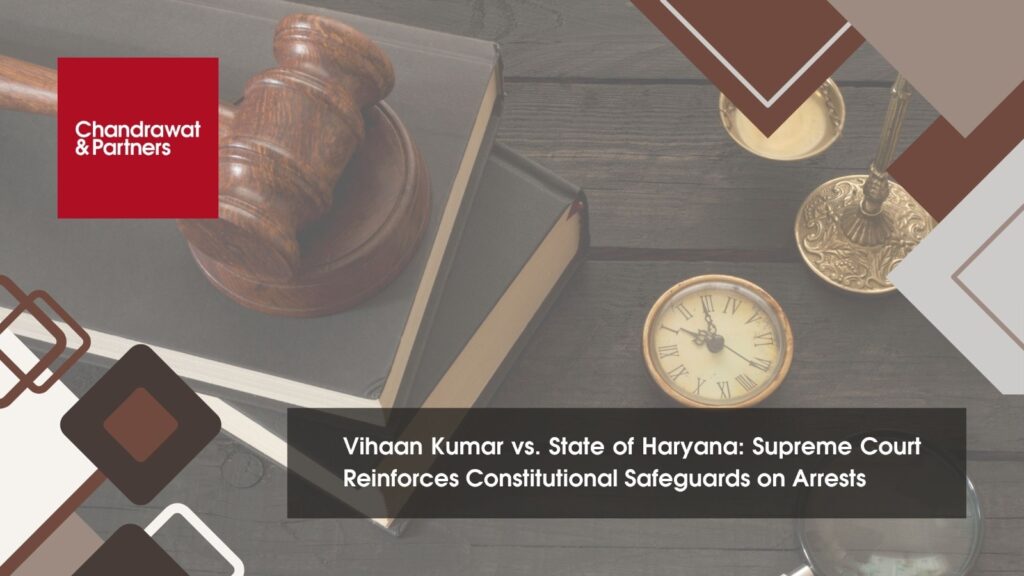Home > Recent Judgements > Vihaa Kumran VS. State of Haryana: Supreme Court Reinforces Constitutional Safeguards on Arrests
Feb 08, 2025
Vihaa Kumran VS. State of Haryana: Supreme Court Reinforces Constitutional Safeguards on Arrests
On February 7, 2025, the Supreme Court of India delivered a significant judgment in the case of Vihaan Kumar vs. The State of Haryana, emphasizing the constitutional mandate under Article 22(1) regarding the rights of arrested individuals.
Case Background
Vihaan Kumar was arrested by the Haryana police on June 10, 2024, in connection with allegations of cheating and forgery. He contended that he was not informed of the grounds for his arrest, thereby violating his rights under Article 22(1) of the Constitution, which mandates that an arrested person must be informed of the reasons for their arrest and be allowed to consult a legal practitioner of their choice.
Supreme Court’s Findings
The Supreme Court, comprising Justices Abhay S. Oka and Nongmeikapam Kotiswar Singh, examined the case and concluded that the police’s failure to inform Kumar of the grounds for his arrest rendered the arrest unconstitutional. The Court emphasized that merely informing a relative about the arrest does not fulfill the constitutional requirement of informing the arrested individual of the grounds for their arrest. The Court stated, “Mere information of arrest will not amount to furnishing grounds of arrest.”
The Court further observed that the arrest was vitiated due to non-compliance with Article 22(1), and as a result, the continued custody of Kumar was also unlawful. It was noted that the police had not provided any contemporaneous documents to demonstrate compliance with the constitutional mandate.
Implications of the Judgment
This judgment underscores the imperative for law enforcement agencies to adhere strictly to constitutional safeguards during the arrest process. The Court directed the Haryana government to issue guidelines to prevent such violations in the future and to ensure that constitutional safeguards under Article 22 are strictly followed.
The Court also highlighted the importance of informing not only the arrested individual but also their relatives or nominated persons about the arrest, as stipulated under Section 50A of the Criminal Procedure Code. This provision aims to ensure that the arrested person has access to legal assistance and that their detention is not concealed.
Conclusion
The Supreme Court’s decision in Vihaan Kumar vs. The State of Haryana reaffirms the fundamental rights of individuals under the Indian Constitution, particularly the right to be informed of the reasons for one’s arrest. It serves as a crucial reminder of the need for law enforcement agencies to uphold constitutional mandates, thereby safeguarding individual liberties and ensuring justice.
For a detailed analysis of the judgment, you can refer to the article published by Verdictum.
For more information or queries, please email us at
[email protected]





